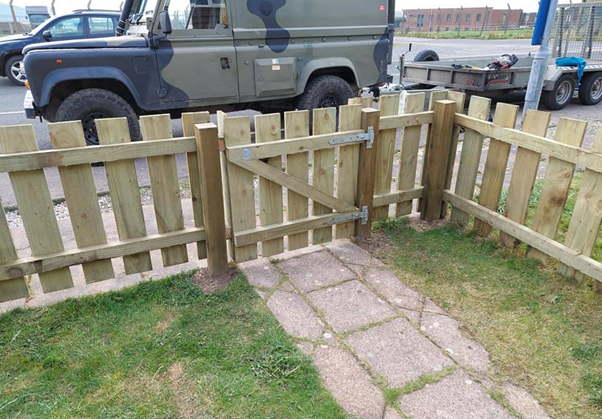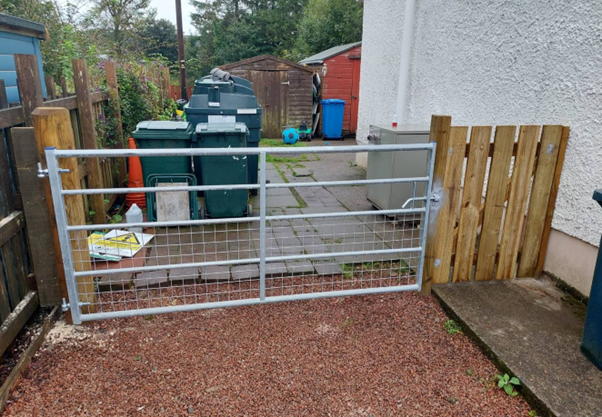A garden gate serves as more than just an entry point; it’s a focal point that enhances the security, privacy, and aesthetic appeal of your outdoor space. With a wide variety of materials and styles available, selecting the perfect garden gate requires careful consideration of your specific needs and preferences. This guide explores different types of garden gates, highlighting their characteristics and benefits.
Wooden Gates:
Wooden gates are a popular choice due to their natural beauty, versatility, and ability to complement various garden styles.
- Curved Featheredge Gates: Featuring overlapping vertical boards that create a textured surface and often a gentle curve along the top, these gates offer a traditional and attractive look while providing good privacy. They are a cost-effective option and blend well with many garden designs.
- Braced Arched Top Timber Gates: These gates are constructed with sturdy timber and feature a braced frame for added strength and an elegant arched top. They offer a more substantial and often more decorative appearance, suitable for creating a grander entrance to a garden or property. Timber can be customized with stains and paints to match existing fencing or garden features.
Composite Gates:
Composite gates offer a low-maintenance and durable alternative to wood. Made from a blend of recycled wood fibers and plastic polymers, they resist rot, warping, and insect damage, eliminating the need for regular painting or staining. Composite gates are available in various styles and colors, often mimicking the look of natural wood, providing a long-lasting and aesthetically pleasing option for garden entrances.
Aluminium Gates:
Aluminium gates are known for their strength, lightweight nature, and resistance to rust and corrosion. They offer a sleek and modern aesthetic and are available in a range of designs, from simple to ornate. Aluminium gates require minimal maintenance and are a durable option for providing security and enhancing the contemporary look of a garden.
Driveway Gates:
While serving the primary function of securing a driveway and controlling vehicle access, driveway gates also significantly contribute to the overall aesthetic of a property’s entrance. These gates are typically wider and more robust than pedestrian garden gates and can be made from various materials, including wood, composite, and aluminium. They can be manually operated or automated for convenience and enhanced security.

Key Considerations When Choosing a Garden Gate:
- Purpose: Determine the primary function of the gate (security, privacy, aesthetics, access control).
- Material: Consider the durability, maintenance requirements, and aesthetic of different materials.
- Style: Choose a style that complements your fencing and the overall design of your garden and home.
- Size and Opening: Ensure the gate is wide enough for its intended use and that the swing direction is practical.
- Security Features: If security is a concern, consider features like robust latches and the overall strength of the gate material.
- Automation: For driveway gates or added convenience, consider the option of automation.
- Budget: Factor in the cost of the gate, hinges, latches, and installation.
By carefully considering these factors and the characteristics of different garden gate types, homeowners can select the perfect gateway to enhance the beauty, security, and functionality of their outdoor space. For a selection of quality garden gate options and professional installation, consider the services offered by Antony Fox Fencing.

